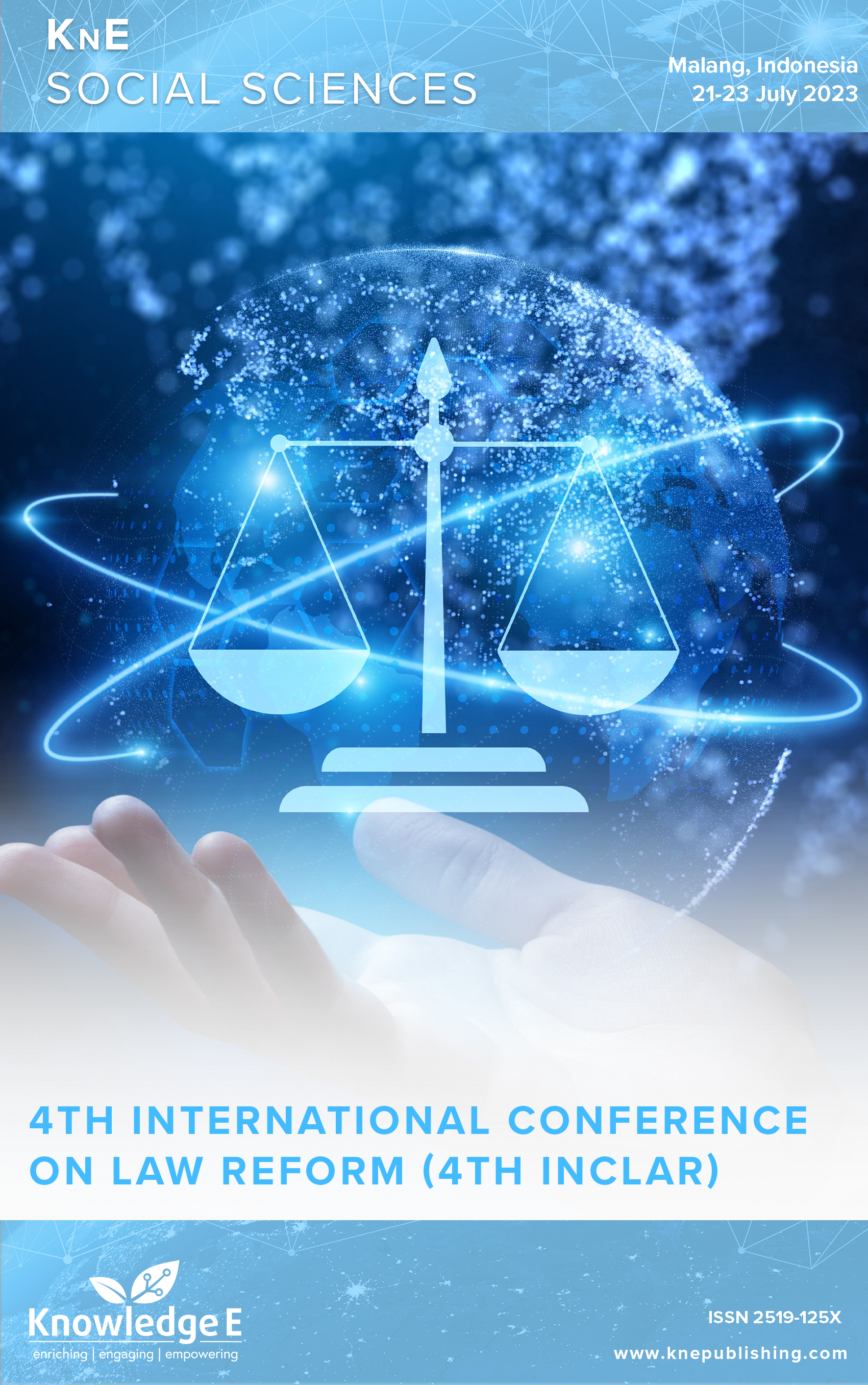Studying the Reprehensible Actions Clause in the Development of Digital Technology as a Policy for Termination of National Offices
DOI:
https://doi.org/10.18502/kss.v8i21.14804Abstract
The development of digital technology has also influenced the development of Indonesian legal regulations in the Reformation Era. For example, relating to the clause on violations of the law in the form of “disgraceful acts” in the dismissal of state officials. So far, it has been focused on actions that are contrary to customary norms, religious norms, and moral norms in general within the scope of conventional crimes only. This has given rise to the motivation to study “disgraceful acts” in the scope of the use of technology/cybercrime which is very likely to occur. The study was carried out using a statutory and conceptual approach, using primary legal materials in the form of legislation that applies to state officials, literature searches, and prescriptive analysis. The result is an understanding that “disgraceful acts” should be understood as acts that are contrary to customary norms, religious norms, and moral norms within the scope of conventional crime and cybercrime. This is regulated because the laws in force in Indonesia are expected to be full of moral and ethical values so that the state officials who are elected are, basically, officials with integrity, quality, and trust.
Keywords: reprehensible acts, termination, state officials
References
Hufron. “Pemberhentian Presiden dan/atau Wapres menurut UUD 1945,” Universitas Brawijaya, 2012.
Shidarta, Etika dan Budaya Hukum Dalam Peradilan. Jakarta: : Sekretariat Jendral Komisi Yudisial Republik Indonesia, 2017.
Law Number 1999 concerning the Administration of a State that is Clean and Free from Corruption, Collusion and Nepotism.
Syawawi R. “Pengaturan Pemberhentian Presiden dalam Masa Jabatan Menurut UUD 1945 (Studi Komparatif Sebelum dan Sesudah Perubahan),” J. Konstitusi, vol. 7, no. 6, p. 051, May 2016, https://doi.org/10.31078/jk763. DOI: https://doi.org/10.31078/jk763
Law Number 24 of 2003 concerning the Constitutional Court.
Number L. 7 of. General Election; 2017.
Law Number 14 of 1985 concerning the Supreme Court. .
Irham M, Mulyati N. Perbuatan Tercela Sebagai Salah Satu Alasan Pemakzulan Presiden Dan / Atau Wakil Presiden Dalam kajian hukum Pidana Indonesia. Sasi Univ. Pattimura. 2021;7(3):276–401. DOI: https://doi.org/10.47268/sasi.v27i3.596
Dewi SS. UPAYA PEMERINTAH INDONESIA DALAM MENANGANI KASUS CYBERCRIME (Studi kasus Cyberporn di Indonesia). Ilmu Hub. Int. 2013;1(2):387–406.
Asshiddiqie J. Perkembangan Dan Konsolidasi Lembaga Negara Pasca Reformasi. Jakarta: Sekretariat Jendral Kepanitraan Mahkamah Konstitusi; 2006.
Santika IG. Presidensialisme Dan Problematika Mekanisme Impeachment Presiden Dan/Atau Wakil Presiden Berdasarkan UUD 1945 Pasca Perubahan (Perspektif Pergulatan Hukum Dan Politik). J. Ilm. Ilmu Sos. 2019 Jun;5(1):23. DOI: https://doi.org/10.23887/jiis.v5i1.18777
Solechan S. Solechan, “Asas-Asas Umum Pemerintahan yang Baik dalam Pelayanan Publik,”. Adminitrative Law Gov. J. 2019;2(3):541–57. DOI: https://doi.org/10.14710/alj.v2i3.541-557
Akbar MA. Politik Hukum Pemberhentian (Pemakzulan) Presiden dan/atau Wakil Presiden di Indonesia dalam Prespektif Negara Hukum dan Demokrasi. SASI. 2020 Sep;26(3):325. DOI: https://doi.org/10.47268/sasi.v26i3.276
Saputra F, Muksalmina. KEKUATAN PUTUSAN MAHKAMAH KONSTITUSI DALAM HAL PEMBERHENTIAN PRESIDEN DAN/ATAU WAKIL PRESIDEN. J. Huk. Sasana. 2020 Dec;6(2):166–83. DOI: https://doi.org/10.31599/sasana.v6i2.361
Nazriyah R. Implikasi Putusan MK Terhadap Netralitas PNS Dalam Pemilihan Kepala Daerah. J. Konstitusi. 2019;6(2):61–80.
Rahmi A. KAJIAN YURIDIS TERHADAP PRAKTIK BISNIS SKEMA PONZI OLEH. 2021;1(1):124–39.
Rosadi SD. CyberLaw: Perlindungan Privasi Atas Informasi Pribadi Dalam ECommerce Menurut Hukum Internasional. Bandung: Widya Padjajaran; 2009.

